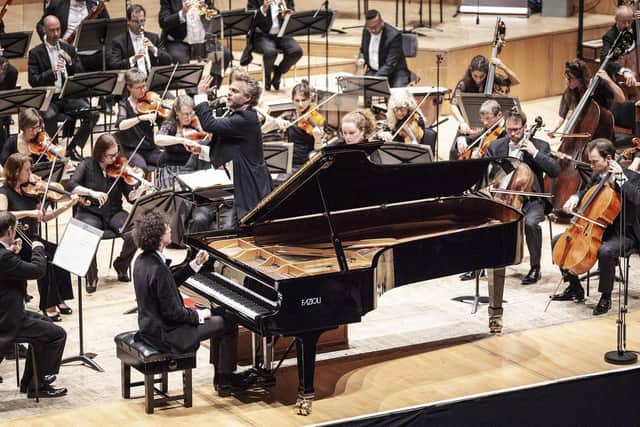Aaron Shorr on the Scottish International Piano Competition: ‘Try to think of it as a lavish festival of piano music’
It’s been six years since the last triennial Scottish International Piano Competition. Covid put paid to the scheduled 2020 event, but it’s back in a few weeks (1-10 September) with an impressive line-up of international competitors, a world-class jury, and some adaptations to the format that artistic director and chairman of the judging panel Professor Aaron Shorr claims will give its Glasgow audiences a superabundant musical feast. “Try to think of it as a lavish festival of piano music rather than an elimination contest,” he suggests.
And lavish it is. Testing their mettle through the preliminary rounds, with the ultimate aim of a coveted place in the concerto finals with the Royal Scottish National Orchestra, will be 29 young hopefuls from around the globe. All are required to perform two 30-minute recitals before selection (or not) to the semi-final stage – a full hour-long recital – all happening at the Royal Conservatoire of Scotland. The lucky three who make it to the final get to perform with the RSNO in Scotland’s Studio under conductor David Neimann. The first prize winner receives £15,000, the Alexander Stone Memorial Trophy and a future guaranteed concerto date with the RSNO.
Advertisement
Hide AdAdvertisement
Hide AdOne major innovation has made the initial application process a more integrated and, in Shorr’s mind, more positively balanced part of the proceedings. Rather than inviting hundreds of entrants to Glasgow for a first round that might see them instantly eliminated and sent home, all 216 this year were asked to submit a 40-minute videoed programme for the pre-selection jury to consider earlier this summer.


“All the main competitions are doing this now, treating these video submissions as the actual first round,” Shorr explains, whose day job is to head up the keyboard faculty at the RCS. “Spurred on by the pandemic, when everything including the student application process had to go online, we at the RCS got very use to this. Besides which, it saves on carbon footprint.”
Of the 29 who did make it through, why are so many from South Korea and China? Shorr is well qualified to comment on that, being married to a South Korean flautist and having spent considerable time in the 1990s working there.
“South Korea’s a musical powerhouse now, especially for pianists, right to where the Russians once were,” he claims. “It’s no accident that the most recent winner of the Van Cliburn Competition was a Korean. The sheer quality of teaching is very high, with a system to identify and train young talent, and give them an extraordinary amount of concert experience. So you have those very experienced players who can withstand pressure, have a vast amount of repertoire, and operate in a country with an extremely hard work ethic and close family units who encourage all aspects of education.”
The same goes for China, equally well represented in the Glasgow competition. “It’s a similar culture, and a lot to do with the iconic influence of such high-profile pianists as Lang Lang,” he says.
And what of several Russians who also feature among the finalists – surely a sensitive area given current geopolitics? “For the most part, Russian musicians are caught in a nightmare scenario, not of their own making,” Shorr believes. “We’re very conscious of this at the RCS where we not only have Russian students, but a large number of Ukrainian refugees, some of them studying under Lithuanian teachers.”
At face value the UK may seem seriously underrepresented, but looks can be deceiving, says Shorr. “There will be many from Korea or China who are actually based in the UK because so many overseas students are studying at the Royal Colleges. Conversely, what could then seem like an internal UK competition is going to be very international and of an extremely high calibre.”
Advertisement
Hide AdAdvertisement
Hide AdAs a regular judge in such competitions, Shorr is invariably asked what he and his colleagues identify in a winner. “We’re not just looking for the obvious, someone who might do well in an exam, for instance. It’s the ones who can provoke and challenge that we’re seeking, who are distinctive, who as artists of the next generation will take us into new realms of musical thought.” Who wouldn’t want a slice of that?
The Scottish International Piano Competition runs from 1-10 September at the Royal Conservatoire of Scotland and Scotland’s Studio. Full information at www.scotpianocomp.com